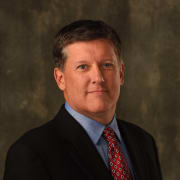Rickie Fowler Is the Latest to Speak Out Against a Rolled-Back Ball. His Commissioner Is Staying Quiet.

More Weekly Read: The Cut Issue in Future Elevateds | LIV's OWGR Chase Continues | Fore! Things
Rickie Fowler was the latest PGA Tour player this week to make clear—strongly—that he is not in favor of a rolled back golf ball. The "Model Local Rule" proposed by the USGA and R&A in March would see elite players be required to play a ball that does not travel as far, likely by as much as 15-20 yards.
"I don’t like it," Fowler said. "I think the only person I heard speak potentially in favor a little bit was maybe Rory (McIlroy) I think. Outside of that, as far as players, Tour manufacturers and stuff, I don’t know anyone that is anywhere learning towards it. Everyone’s against it."
Fowler was reminded later that Tiger Woods is also—and has been—in favor of a ball rollback. Jack Nicklaus has been saying it for years.
The USGA/R&A proposal is in a comment period. It would not go into effect prior to 2026.
Clearly golf ball manufacturers, for numerous reasons, don’t want to see this happen, among them the fear it will cut into profits. And players who have endorsement deals with those companies are going to side with them. It’s also fair to suggest that learning a new golf ball is not exactly a prospect many would embrace, especially given how much time and effort goes into getting their equipment dialed in.
But there is also evidence to suggest that such a move is necessary at the elite level. To preserve classic golf courses for tournament play. To bring some of the skills necessary back into the pro game. To save on water and chemicals and maintenance of those longer courses. There are no easier answers.
"The bifurcation, I don't like," Fowler said of pros and amateurs having different rules. "Another, obviously manufacturers to create new product between golf balls, equipment, that's going to be a lot of money in research development, engineering and obviously producing something. Ultimately ... that’s going to go to the consumers. It's going to ultimately hurt the game."
All of which leaves PGA Tour commissioner Jay Monahan in a tough spot. Two of the biggest names in the sport are seemingly in favor of a ball rollback. Most of his members are not.
Monahan said "I will not talk about my position" until he’s gone through the proper vetting process with the USGA and various people associated with the Tour.
Still … could we be in a position where the top level of the game goes by different rules?
The USGA & R&A are clearly on board with going to the Model Local Rule. That’s why they proposed it. Masters chairman Fred Ridley more or less suggested his agreement last month. That would be three major championships that potentially put the rule in place, while the PGA Tour and the PGA Championship—whose membership consist of club pros who sell product—might not.
That leaves the PGA Tour in a precarious position. Certainly Monahan and the Tour want to play by USGA rules. And technically they would be doing so because this is a local rule that does not have to be enacted.
Nonetheless, the idea of having to play a different golf ball at the majors cannot be appealing.
